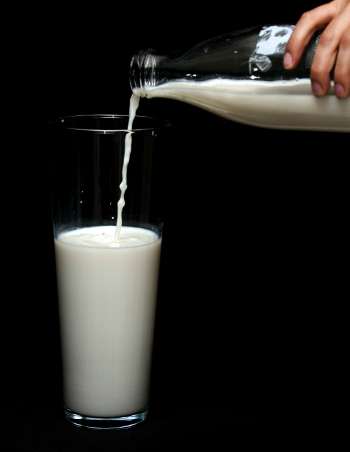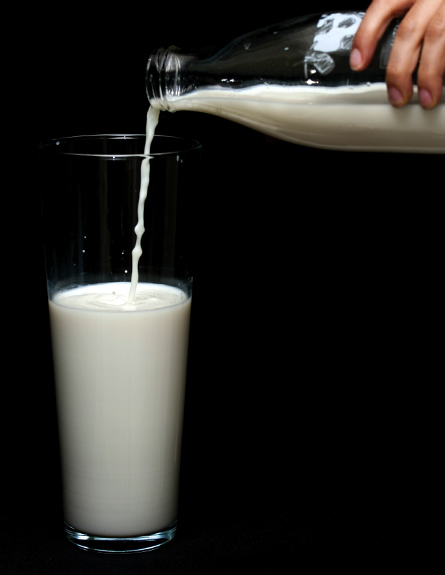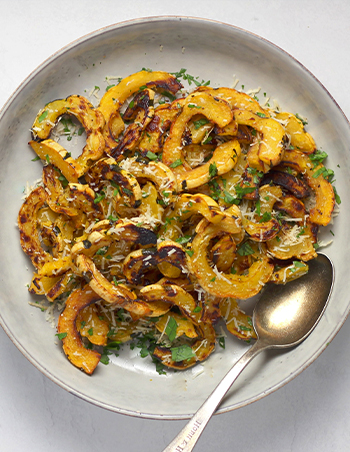
Everything You Need to Know About Camel’s Milk
Date: 11/04/2022
Camel’s milk has more nutritional benefits than cow’s milk, but not many people in the US know about this rich source of vitamins and minerals from overseas. Read the article below for all the latest on camel milk benefits, and where to find camel’s milk in the US!
Dairy vs. lactose free? This is a question upwards of 65% of the world’s population have had to ask themselves at least once in their lives: should I really be having milk? Or will it make me sick? Add to that the global push for more sustainable dairy products, as well as the rise in vegan and vegetarian-based diets, and you’ll understand why we’re seeing so many vitamin-rich milk alternatives out there that do not cause unwanted lactose reactions or digestive issues.
Beyond the soy milk craze, the coconut milk craze, and the other milk alternative trends that have come up over the last ten or so years however, I want to talk about a type of milk that is very much like cow’s milk, but with much more nutritional value (plus it doesn’t trigger lactose intolerance!). Although it’s not vegan or vegetarian-friendly, camel’s milk is proving to be much more than just a healthy food. Many scientists across the world even consider it a medicinal use product due to its impacts on the immune system, among other positive health effects.
Now, while camel’s milk is already relatively popular overseas, I do believe that environmentalists and more western populations in general might benefit from a higher-level understanding of camel’s milk, how it’s produced, and the natural benefits that come from drinking it regularly, or as part of a larger treatment methodology.
That’s why today I’m looking at comparisons between cow’s milk and camel’s milk. I want to explore the benefits it has on human health, particularly where it concerns autoimmune diseases and chronic illness–a subject that is near and dear to my heart and household. I’ll also show you where you can get camel milk in the U.S. if you’re interested in trying some for yourself!
Origins of Camel’s Milk
Did you know there are an estimated 18,000 cows for every ONE camel in the United States? Thankfully, these trends don’t stand for the rest of the world. Indeed, camel’s are still integral to survival in desert-like, arid temperate areas overseas. As a strong pack animal, camels can carry up to 600 kgs on their back. At the end of its life, a camel can also produce meat, fine hair, and hide for tanning and leatherwork.
Ayurvedic medicine has attributed a medicinal value to camel milk that spans centuries–even some of humanity’s ancient holy books mention the camel as among the animals known to the ‘miracle of God’. As a result, the remedies that make use of camel’s milk originate from indigenous knowledge in areas such as India, Russia, and Egypt (among many others). From these teachings (which have thankfully survived through the ages), we know that letting camels eat certain plants will enhance the medicinal benefits of its milk. We also know that – due to limited medical resources in remote areas on the periphery of major city hubs – many continue to use camel’s milk for both its nutritional and medicinal benefits even today. Only now are these benefits becoming popular here at home.
Is camel’s milk different from cow’s milk?
Yes and no. When you try camel’s milk for the first time, you’ll notice that camel and cow’s milk share similar consistency and taste. The camel’s milk has less of a sweet undertone bordering on savory. You can also make butter from camel’s milk just like from cows, however the process takes quite a bit longer, meaning less yield overall. The same goes for cheese made of camel’s milk, such as domiati cheese.
Many research findings prove that camel milk is closer to human milk than any other milk. In comparisons between camel’s milk, cow’s milk, and human milk, studies show that camel’s milk has less calorie count than cow’s milk and is about similar to human milk. Camel’s milk is also richer in iron and copper elements, niacin, and vitamin C, with reports showing higher levels of vitamins B6 and B12.
Did you know that camel’s milk has 3x the amount of vitamin C, and 10x the amount of iron as cow’s milk?
Camel’s milk differs from other animal milks in that it’s lower in cholesterol and sugar, but higher in minerals like sodium, potassium, iron, zinc, and magnesium. According to this article, camel milk proteins also show the required balance of amino acids for human diets, per WHO, UNU, and FAO requirements–a listing which also supports the safe consumption of camel’s milk for humans. And since camel milks are low in protein but high in insulin concentrations, camel’s milk leads the way over cow’s milk–though the latter does have higher levels of Vitamin A, E, and B1.
What are the main benefits of drinking camel’s milk?
Thanks to the surprising benefits of camel’s milk, I want to explore what I’ve discovered about both the medicinal and nutritional benefits of this up and coming dairy product. I’ve also included a brief discussion about camel milk’s specific effects on the human immune system, so be sure to watch out for that as you read!
Nutritional Benefits of Camel’s Milk
As I mentioned, camel’s milk has an incredible nutritional and mineral profile that supports regular consumption. As a nutritional supplement to any good diet, camel milk will therefore punch way above its weight when it comes to adding all that good stuff to your body!
Not only does it contain high concentrations of calcium, zinc, and iron, but camel’s milk also has a low pH balance which increases its absorption by the gut. Recent studies have reported on camel milk’s high concentration of fatty acids and immunoglobulins, and even insulin. Aside from the overall health benefits that come from a positive gut environment, the nutritional benefits of camel’s milk may therefore have a direct effect on lactose and other allergies, stomach and intestinal disorders, and even cholesterol reduction.
Medicinal Benefits of Camel’s Milk
Many studies from the past decade or so can attest to the medicinal benefits and characteristics of camel’s milk, including reductions in hypertension and carcinogens in the blood. In India for example, camel milk has been used therapeutically against dropsy, jaundice, as well as tuberculosis, asthma, and even anemia. Reports show camel’s milk as a potential protocol for treating malaria and pneumonia, while medical professionals in Kazakhstan use camel’s milk as an adjunct therapy for chemotherapy; specifically, treatments that target the digestive tract.
While I am sure there are many more benefits out there, and while I know that researchers continue to study this potential health resource, I am nevertheless inspired by the research that’s come out to date about camel milk. To celebrate that inspiration, here is a short-list of the most intriguing medicinal benefits for camel milk, as found during my research. I hope this short list sparks your interest and excitement in camel’s milk for medicine AND nutrition as it has for me!
- Camel milk has been reported to possess antibacterial and antiviral activities, as well as protective proteins that aid in immune system function.
- A study from 1978 showed that patients with chronic hepatitis infections had improved liver function once camel milk was integrated into their diet.
- Diseases and ailments which have been successfully treated with camel’s milk (though more studies are always needed) include constipation and crohn’s disease, with interesting findings coming out in the last two decades about the benefits of camel milk for autism.
- Camel milk is rich in healthy fatty acids (it has similar fat content to olive oil), and enhances blood absorption in the body–meaning it’s similarly associated with a reduction in risk of cardiovascular issues.
- Insulin demand has been shown to decrease in diabetic patients when camel milk is supplemented into the diet.
- Camel’s milk is said to be an aphrodisiac! This may explain why it has soothing effects on stress-induced conditions such as hypertension.
Excited yet? Now let’s look at camel milk’s specific health benefits when it comes to improving immune system function–particularly for those with chronic illness.
Immune System Benefits of Camel’s Milk
Autoimmune diseases cause the body to turn against itself, mistakenly making antibodies that see the cells of the body as foreign. These antibodies can initiate tissue destruction that disrupts normal functioning of the immune system, with results ranging from crohn’s disease, lupus, MS, to lyme (which I have). According to a report from the American Autoimmune Related Diseases Association (AARDA), “more than 100 immune diseases affect over 50 million Americans every day. Of those, 75% are women.”
Because autoimmune diseases are there for the long-haul, constant care and monitoring is necessary over a person’s entire life. And while people like myself manage to live a relatively normal existence day-to-day, such treatment rarely (if ever) causes these diseases to disappear entirely. We still suffer sever symptoms, aches, pains, and days of feeling completely drained in body and mind. Worse yet, many of the drugs prescribed to treat autoimmune disorders suppress immune system function as well, causing unwanted side-effects that lead to further days in bed.
That’s why camel milk has me so excited. It seems like camel milk is just in the beginning stage of its possible journey as a ‘trending’ additive to one’s diet. Yet, as many researchers have suggested the symptoms of autoimmune disorders (and even the autoimmune disorders themselves) may be mitigated by drinking camel’s milk, I think the stone will continue to roll.
For example, researchers have since discovered that immune system cells are super-sensitive to zinc deficiencies, which gives the high zinc content in camel’s milk a leg up over cow’s milk or other milk alternatives. Other studies to back up these findings state that since “a camel’s immune system is stronger than that of a human”, the potential for camel’s milk as a rehabilitative agent for immune system therapy is high. This is especially true thanks to that increased immunoglobulin content we talked about earlier! Because these and other antibodies are smaller in camel’s milk (about one-tenth the size of human ones), they more easily translate into the human body and bloodstream for immune system support.
Can I drink camel’s milk if I am lactose intolerant?
Yes! Studies show that because of the differences in the physiology of camel’s milk and a lactose concentration of 4.8%, camel milk sugars are more easily metabolized by lactose intolerant populations across the globe, and do not ‘trigger’ the allergic reaction known to cow’s milk. A study of eight younger children with milk allergies that were not impacted by conventional treatments were also reported to have “fully recovered from their allergies” after regular camel milk consumption.
“Within 24 hours of starting to drink the milk all the children showed diminished symptoms. Within 4 days all symptoms had disappeared. No recurrence of the allergic reactions was re- ported. Most parents continued giving their children camel milk for another month.”
Are there any risks to drinking camel’s milk?
Are there any risks to drinking camel’s milk? About as much as anything else, including drinking cow’s milk. Camels – like any other livestock – are prone to airborne viruses such as MERS, which can be passed along to humans through proximity or eating camel by-products. That said, The World Health Organization and the Saudi Health Ministry have placed regulations for camel farm workers to take specific precautions against MERS. These protocols ensure good hygiene, and include frequent hand washing after touching animals, facial protection, and wearing protective clothing, all to decrease the risk of transmission between animals, and between animals and humans.
As long as you do your research and are buying your products from a reputable seller like Desert Farms, then there should be little to no risk to drinking camel’s milk.
Is Camel’s Milk Legal in the US?
According to realmilk.com, camel milk is still pretty hard to find in the US, but fairly easy to find if you live in the middle east. And while they say that the milk retails for about $16 a pint, they’re wrong when they say that camel milk is illegal here in the states!
Camel milk is absolutely legal in the US, following a 2012 ruling by the FDA. So long as standards are followed, camel milk is sellable when pasteurized, and is currently sold by major producer Desert Farms.
Where can I get camel’s milk in the US?
California-based Desert Farms sells camel milk and camel milk products, and host farms all along the American Midwest. Although most of their dairies have only two to 20 camels each, just one camel produces around five liters of milk per day, so supply often meets demand. Plus, the small-scale nature of these farming practices means you’ll never get machine-farmed camel’s milk.
New craze? Or here to stay?
With camel milk now on the radar, California-based Desert Farms is ready to “make every day a hump day” by providing you with delicious, nutritious camel milk…and I’m ready to drink it! Most camel product sellers are just as supportive of camel milk consumption as I am, and I love watching skin, food, and supplement product lists grow to see what yummy treats are available.
So, I’m curious. After reading this article, did you learn something new? Were you skeptical about drinking camel milk before you started reading? Are you more open to drinking camel milk now that you’re done the article?
If so, then yay! Now I want to know how you have been using camel’s milk as a nutritional supplement or medical treatment. What do you recommend for me as I continue my own camel’s milk journey?
Whatever comes, I am just glad we are living in an age where it’s possible to get camel’s milk right here in America. The doors to natural treatments and therapeutic methods are forever opening, and I’m always looking for new and interesting findings when it comes to food and health. Until the next time I discover something new I want to share,
All my love!
![]()
Lena
SUBSCRIBE
Get the latest updates, sneak peeks and more.
 Back To All Posts
Back To All Posts Previous Post
Previous Post

